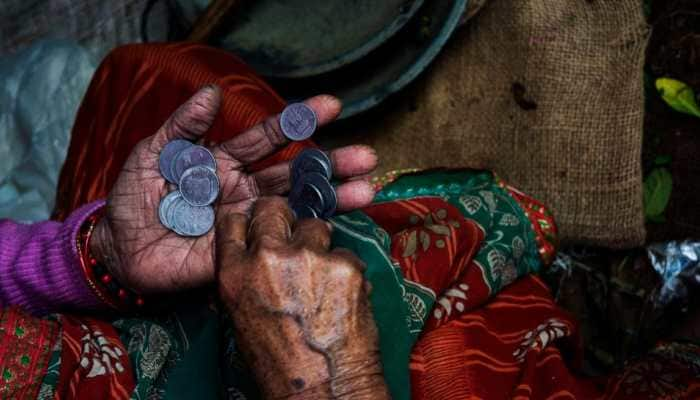Bored of drinking tea? Now, chew it and feel refreshed!
On the art of bringing new blends for tea connoisseurs, he said a tea-taster has to identify the mistakes in its manufacturing, rectify it and give the best blend according to the requirement in the market.
Trending Photos
)
Mumbai: 'Chai', the quintessential part of our daily life, is now getting "popular" in chewable form and has been also found to "lessen" the effects of nicotine among smokers.
In some parts of Germany, people chew white tea leaves, which is a phenomena very similar to chewing 'paan masala' in India, to invigorate themselves, an Ooty-based Doddabetta Tea Factory and Tea Museum's General Manager L Varadaraj told PTI.
"It was really quite interesting to know that people there (in Germany) use White Tea (silver tips tea), just like pan masala, for refreshment," said Varadaraj, whose factory exports White Tea in parts of the European country.
White Tea variety is more costly in the tea industry. The leaves are hand-plucked and sun-dried before being exported.
Unlike other varieties, white leaves remain unprocessed, which is why, they have high quantity of anti-oxidants and even considered better than green tea in terms of health benefits, he said.
White tea is made out of the buds of tea and not from leaves. "The consumers put it in mouth and chew it. It is also found to reduce the toxicity of nicotine among smokers," he said.
On the art of bringing new blends for tea connoisseurs, he said a tea-taster has to identify the mistakes in its manufacturing, rectify it and give the best blend according to the requirement in the market.
"The most interesting and intriguing aspect of tea tasting is infusion - which should be always bright coppery or greenish yellow, the cup which is used for tea tasting should be bright, and especially for CTC (crush, tear and curl) teas. It should have good depth and after infusion, the edges of the cup should be yellowish.
"While sipping, the tea should have both heaviness and briskness. When added with milk, the tea should look bright. Mellowness is the important aspect in tea tasting," he said.
Master tea-taster Sanjay Kapur, the owner of tea brand 'Sancha', said an experienced tea-taster will curate blends keeping in mind the sensibilities of his customers.
"From time-to-time, a blender will introduce new aromas and flavours to his customers to keep the excitement going. Likes and dislikes are always evolving," he said.
The curator deals with the palate and aroma of his creations. The ingredients used determine the end product. The taster creates blends with ingredients which must appeal to the audience which it is being created for, he said.
The two aspects in common are taste and flavour which even tea-tasters and blenders need to keep foremost in mind, said Kapur, who has been in tea industry for over 40 years.
Varadaraj said, "We in India prefer strong type of teas and that is the reason we always use dust teas, whereas people abroad prefer mild and good flavoured teas and that is why they always use leaf teas."
"Of late people's preferences have changed from normal CTC dust tea to green tea, since it has lot of antioxidants and people have become health conscious," he said.
When asked about the fun of pursuing the art form of tea-tasting, Kapur, who launched a unique blend of floral Darjeeling tea and a select strong full-bodied Assam tea at the recent Kala Ghoda Arts Festival in Mumbai, said, "Our primary role is to search for exotic flavours in natural tea found in so many varied producing areas and gardens."
He said as the terrain and weather changes, the flavour of tea also changes. For example, original teas plucked and manufactured in Nilgiri are distinctly different from those produced in Darjeeling or Kangra.
The art of tea-tasting can only be learnt by working at grassroot levels, he said adding that in-house they taste over 1,000 samples each week which come from various places.
"In India, we have now started to enjoy exotic fruits and vegetables and cuisines with varied flavours. Drinking exotic teas with varied flavours is one of the outfalls of this experiential change. Overseas in the western and the Asian world, tea is revered for its varied characters and not just dealt with as a 'wake me up' cuppa," said Kapur, who has tea boutiques in Delhi, Gurgaon and Mumbai.
He also said that tea-tasting remains a niche profession and as long as people are passionate about tea, tasters like him remain passionate in pursuit of exotic teas.
Author T Damu, who held senior managerial positions with the Tata group and has written a book titled 'The Story of Tea', said no doubt tea drinking is increasing all over the world and is considered a 'health beverage'.
Nowadays, green tea is slowly becoming more popular, he said.
"Tea growth has increased, but labour prices are on the higher side. Several plantations in South India are finding it difficult to survive. Unless the government comes forward with remedies on taxation part, it seems a difficult phase for the industry," Damu said.
Stay informed on all the latest news, real-time breaking news updates, and follow all the important headlines in india news and world News on Zee News.
Live Tv







)
)
)
)
)
)
)
)
)
)
